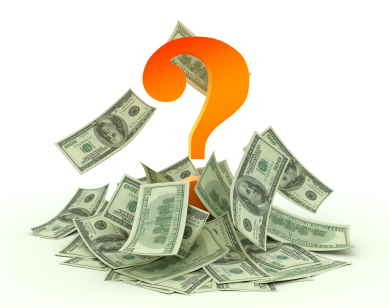What does signing to a non-exclusive deal mean? One question has come up consistently over the years when my artist friends come across a company using the term “…represented on a non-exclusive basis…” At first they think “Score! Someone’s going to put my music on TV and I get to keep my all my rights!” But hold on - it’s important to understand more about this situation.

We’ll take a look at some of the differences between exclusive and non-exclusive contracts and how they could potentially affect your copyright value and revenue as an artist. This entry will cover non-exclusive agreements.
Non-Exclusive Basics
- You retain your rights.
- You typically get royalties from the artist’s share of your performance royalty.
- They typically keep the publisher’s share of the performance royalty.
- They typically take 50% of the synchronization fee (65% in the case of Pump!)
Exclusive Basics
- You retain your rights.
- You typically get 100% of the artist’s share of your performance royalty.
- The publisher’s share of performance royalty is negotiable.
- They typically take a negotiated percentage of the synchronization fee.
Hmm, doesn’t look too different does it? Let’s dig deeper.
Non-Exclusive: Alright, the big benefit of being non-exclusive is that you can literally get your music out there, to anyone. You can register with as many non-exclusive entities that you like, you can get 3rd party PR representation, and you can shop your music to agency producers and TV/Film supervisors yourself.
This is means you can literally put your song in multiple places and have multiple people getting your music out to lots of supervisors and agencies. 
This could mean that you get put up for a lot of opportunities, but as you can probably tell there are some caveats to be aware of with a non-exclusive deal.
First, there are terms for these deals even though they’re non-exclusive. That means if you get offered an exclusive publishing deal but have signed a non-exclusive deal, some extra legwork on your end may be involved to get you out of the non-exclusive contract so you can sign the exclusive one (if you want to).
Next, you MUST realize that these companies do NOT get top-dollar for the tracks that they license.
A “low-budget” advertising sychronization fee, let’s just say, is around $10-30K. But, if the agency is looking for a pre-cleared track, chances are the most they’ll get is $3-4K, and that’s IF the fee is negotiated (some services provide shopping-cart checkout - meaning everything is always the same price).
This is BAD. It means that your music is only being put up for opportunities that will yield low dollars and probably have limited air-time (meaning your performance royalties are smaller too). 
That said you may have 50 scratch tracks sitting around from 1994 and weirdly, people aren’t listening for that sweet Ace of Bass sound anymore. Or, you may be in a rock band but have a bunch of film trailer tracks that you did for fun that are just collecting digital dust - upload away! In this case, it’s bonus money for songs you don’t really care about.
However if you’ve got your heart and soul in a project and you’ve just started shopping it around, or you don’t know where to start but would LOVE to get your music on TV, it may be best to skip a non-exclusive service.
There’s one more thing to consider and it’s something I like to call…
“Perceived copyright value” - This means that when someone thinks of your song they associate a price point with it automatically depending on certain variables.
For example, if I told you I have a really great song and all my friends tell me it would be perfect for a commercial, you might roll eyes or punch me in the face depending on how many times you’ve heard that as a music supervisor. 
But if I say “hey, I JUST released my new EP - it sounds awesome! I recorded in the same studio with the same engineers as Arcade Fire and it was produced by a guy who’s got 5 top fifty songs to his credit,” well, which one do you think sounds more expensive?
The point is this - if an ad agency hears “pre-cleared,” they know that means cheap.
Sure, it also means “easy to license” and that’s important to them a lot of times, but what they won’t do is bother to remember who the artist is that created the track or put it on their iPod (I mean never say never, but in reality it’s tough enough to get them listening to new major publisher stuff on their iPod).
If you’ve been thinking about doing one of these deals, I encourage you to take a look at the FAQ on the company site and be really certain you know what you’re giving for what you get.
If you liked this article, why not head over to my blog and subsribe to my newsletter? It has tons of awesome information I’ve learned pitching music for use in advertising and working in the music industry for nearly 10 years.